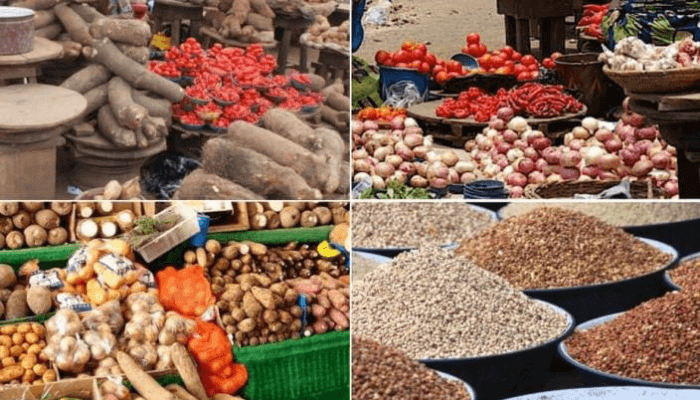
Here are the food commodities in Nigeria this week:
Rice
50kg Bag of Rice: Prices have decreased to approximately ₦82,000–₦85,000 for long-grain foreign rice, down from ₦95,000–₦100,000 in previous months.
Imported short-grain rice is now priced between ₦65,000 and ₦67,000, a drop from ₦80,000–₦90,000. Local parboiled rice is around ₦89,000, slightly reduced from ₦90,000–₦100,000.
Tomatoes and Pepper
Pepper: The price of a small basket has risen to ₦2,500, up from ₦1,500–₦1,800 in recent weeks. A big basket now costs between ₦15,000 and ₦20,000.
Beans
Yam
Yams: The influx of new yams into the market has led to reduced prices. In markets across Benue State, 10 tubers of yam, previously priced between ₦12,000 and ₦18,000, now sell for ₦10,000 to ₦15,000.
Other Grains
Maize, Millet, and Sorghum: In Kaduna State, a 100kg bag of maize, which sold for ₦70,000 to ₦75,000 during the harvest period, now costs ₦47,000.
Millet and sorghum prices have similarly decreased, with current prices ranging between ₦50,000 and ₦51,000 per 100kg bag.
Palm Oil
Palm Oil: The price of palm oil has experienced a reduction. In Benue State, a litre of palm oil, previously priced at ₦2,500, now sells for ₦1,800.
Semovita
Semovita: The cost of semovita remains relatively stable. A 2.5kg pack is priced at ₦3,700, while a 12kg pack costs ₦12,300.
Beef
1kg (Boneless): Averages at ₦6,000, though prices can differ across markets.
Factors Influencing Food Prices
Inflation: Nigeria’s food inflation rate remains in double digits, affecting affordability.
Fuel Prices: Increased fuel costs have raised transportation expenses for food distribution.
Insecurity in Farming Regions: Banditry and farmer-herder clashes in states like Kaduna, Benue, Zamfara, and Plateau have disrupted agricultural activities.
Seasonal Variations: Off-season farming leads to a reduced supply of perishable goods.
Foreign Exchange Rates: The depreciation of the naira affects imported food items and farm inputs like fertilizers and machinery.
While some food prices have decreased, the overall cost of living remains high due to persistent inflation and other economic factors. Consumers are advised to plan their purchases carefully and consider bulk buying to mitigate costs.
